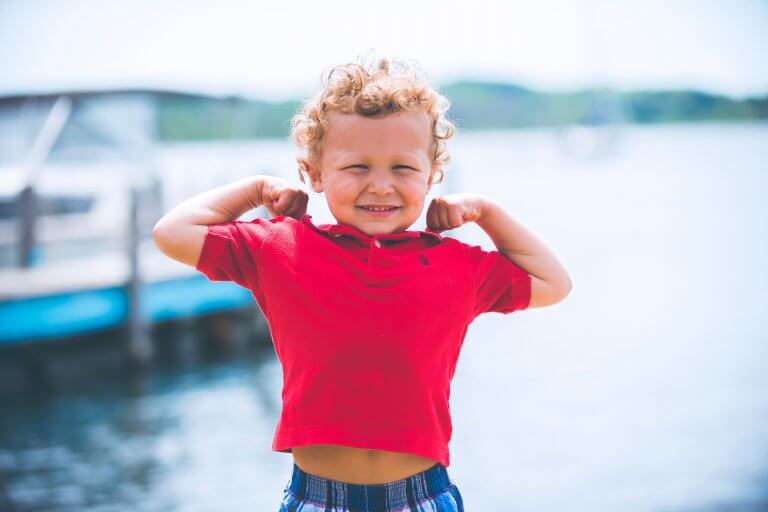What Factors Influence Attachment in Adopted Children?

Why is it important to talk about attachment in adopted children? Because all adopted children go through certain experiences in their first few years of life that can complicate their development — experiences that other children don’t have to deal with.
These experiences can lead to concerning behavior in adopted children. Some are excessively dependent on their parents, while others become emotionally distant. Keep reading to learn some possible reasons why.
“When we belong to a mother, a family, a language, a culture; we construct our identity, we become someone.”
-Boris Cyrulnik-

What are the variables that influence attachment styles in adopted children?
Adopted children often go through difficult situations uncommon for their age before going to live with their new family. Some of these situations play a significant role in the development of attachment.
For example, children are less likely to develop a secure attachment with their adoptive parents if they’ve experienced abuse or neglect in their birth family, orphanage, or foster family.
In their first few years of life, children need adults around them who will respond effectively to their need for support and closeness. If the caregiver ignores the child or responds aggressively, the child will become distrustful and fearful of the person who should be making them feel safe, which will influence their future relationships.
The same thing happen when children are institutionalized for a long time. Today, there are a lot of policies in place to prevent orphanages from mistreating children. However, that doesn’t mean they can meet their many emotional and psychological needs, so critical at this age. This has a direct effect on attachment in adopted children.
Even when they’re taken care of physically, there tends to be just one caretaker for many children. Thus the caretaker has trouble caring for them emotionally.
“What’s done to children, they will do to society.”
-Karl Menninger-

What can adoptive parents do to encourage a secure attachment?
While adoptive parents have no control over these early experiences, is there anything they can do to ensure proper social and emotional development in their children? Of course. Parental behaviors and personalities play a fundamental role in the development of attachment.
Among the variables that encourage a secure attachment in adopted children are:
- emotional stability
- stress tolerance
- flexibility
- appropriate expression of affection
In other words, adoptive parents should be mature and have secure attachment styles themselves. That way they can teach their children by example.
Adoptive parents should also have the resources to face adversity, positively regulate their negative emotions, and ask for help when they need it. When asking for help, they should never feel like they are worse parents because of it. Being open to asking for help shows their children the importance of managing their emotions.
This will also help them understand and connect with their adoption. This is so important because many adopted children feel guilty, unimportant, and abandoned. If they can shift their perspective, they’ll develop more secure attachments.
“What matters is not that anyone has the right to adopt a child, but that the child has the right to not be adopted by just anyone.”
-Fernando Savater-
Images courtesy of Rene Bernal, Larm Rmah and Ben White.
This text is provided for informational purposes only and does not replace consultation with a professional. If in doubt, consult your specialist.








